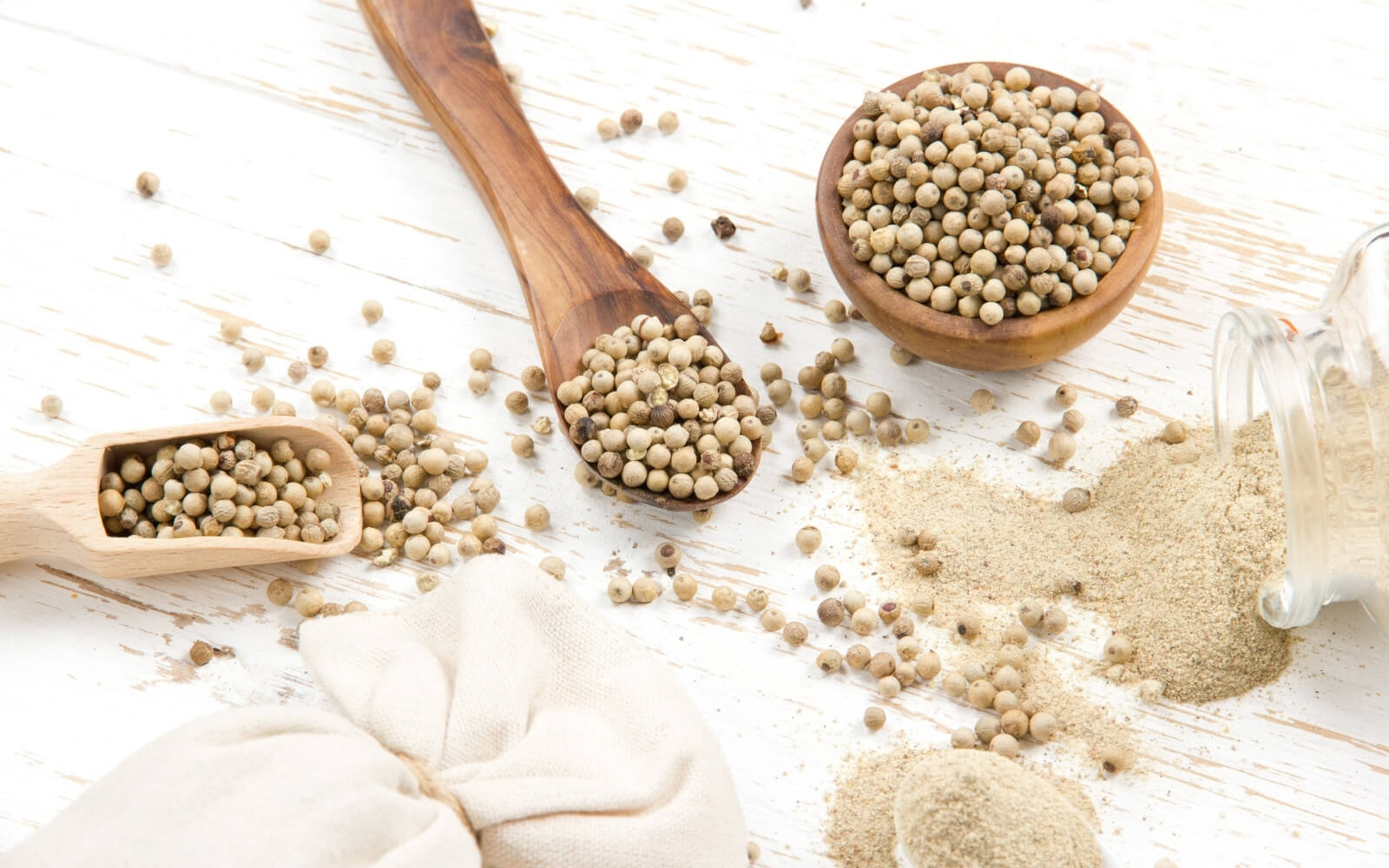Top 4 Benefits of Vitamin C

Top 4 Benefits of Vitamin C
Vitamin C is an essential vitamin, meaning your body can't produce it naturally and therefore, must be obtained through diet. It has lots of important roles in the body and has many impressive health benefits. Vitamin C is water-soluble and is present in many fruits and vegetables including oranges, strawberries, kiwi, bell peppers, broccoli, kale, and spinach. In this article we discuss the top 4 benefits of vitamin C and vitamin C food sources.
1. Vitamin C May Reduce Your Chronic Disease Risk
Vitamin C is an extremely powerful antioxidant that may aid in strengthening your body's natural defenses. Antioxidants are molecules that fight free radicals in your body and boost immune system function. Free radicals can promote a state known as oxidative stress and have been linked to many chronic and neurodegenerative diseases such as Alzheimer's disease and Parkinson's disease.
Research suggests that consuming more vitamin C can increase your blood antioxidant levels by over 30 percent. This in turn, helps the body's natural defenses fight inflammation.
2. Vitamin C Can Boost Immunity
Perhaps the most well-known reason people take vitamin C supplements is to boost their immune system function. There are a few different ways vitamin C is involved in boosting our immunity.
1. Vitamin C encourages the production of white blood cells—more specifically known as lymphocytes and phagocytes that help protect the body against infections.
2. The white blood cells then function more effectively as vitamin C protects them from potentially harmful molecules such as free radicals.
3. Vitamin C is a vital component of the skin's defense system. It's actively transported to the skin, where it acts as an antioxidant and helps to strengthen the skin's barriers. In fact, research shows that supplementing with vitamin C may shorten wound healing time.
3. Vitamin C May Help Prevent Gout Attacks
Gout is an extremely painful form of arthritis that affects nearly 4% of adult Americans. It involves inflammation of the joints, especially in the big toes. Pain is often sudden and intense. Gout flares up when there is too much uric acid in the blood. Uric acid is a waste product produced by the body and at too high of levels may crystallize and deposit into joints.
Studies show that vitamin C can reduce uric acid in the blood and as a result, protect against gout. One study that included 1,387 men found that those who consumed the most vitamin C had lower blood levels of uric acid than those who consumed the least.
Another separate study that followed 46,994 men for over a 20-year-period to determine if vitamin C intake was linked to a lower risk of developing gout found that those who took a vitamin C supplement each day had a 44% reduced risk of developing gout. Furthermore, an analysis of 13 subsequent gout and vitamin C-related studies found that taking a vitamin C supplement for over 30 days reduced blood uric acid.
4. Vitamin C Can Protect Your Memory As You Age
Dementia affects over 35 million people worldwide and is a broad term used to describe symptoms of poor thinking and memory issues. Research shows that oxidative stress and inflammation in or around the brain, spine, and nerves (referred to as the central nervous system) can significantly increase the risk of developing dementia.
Vitamin C is a powerful antioxidant and several studies have found that individuals with dementia have lower blood levels of vitamin C.
High vitamin C intake either from natural foods or supplements have been associated with improved thinking and memory as you age and may aid against conditions like dementia if you don’t get enough vitamin C from your diet.
Additional Health Benefits of Vitamin C
- May help manage high blood pressure: Studies show that supplementing with vitamin C may help lower blood pressure in those with high blood pressure.
- Can lower your risk of heart disease: Vitamin C may help reduce many factors that increase the risk of heart disease, including high blood pressure, high triglyceride or LDL (bad) cholesterol levels.
- Helps prevent iron deficiency: Vitamin C supplements can help improve the absorption of iron. Iron is an important nutrient that has a number of functions in the body. It's essential for making red blood cells and transporting oxygen throughout the body.
Top Vitamin C Food Sources

- Kakadu plums
- Acerola cherries
- Cantaloupe
- Citrus fruits such as oranges and grapefruits
- Kiwi fruit
- Mango
- Pineapple
- Strawberries, raspberries, blueberries, and cranberries
- Watermelon
Vegetables with the highest sources of vitamin C include:
- Broccoli, Brussels sprouts, and cauliflower
- Green and red peppers
- Spinach, cabbage, turnip greens, and other leafy greens
- Sweet and white potatoes
- Parsley
- Tomatoes
- Winter squash
Insufficient Claims About Vitamin C
While vitamin C does have many supported science-backed claims, there are some unproven claims regarding vitamin C. Below are four popular unproven vitamin C claims.
- Reduces cancer risk: A high intake of vitamin C has a number of incredible benefits, however, most cancer and vitamin C-related studies do not assess the risk of developing cancer with vitamin C intake.
- Prevents the common cold: Vitamin C has been shown to slightly improve recovery time from the common cold, however, there are no studies to suggest that it prevents it.
- Protects against eye disease: Vitamin C has been linked to a reduced risk of developing various eye diseases such as cataracts, however, vitamin C supplements have no effect.
- Can treat lead toxicity: There is insufficient evidence for claims regarding vitamin C's ability to treat lead toxicity.
Benefits of Vitamin C Supplements Summary
1) Vitamin C is an extremely powerful antioxidant that may aid in strengthening your body's natural defenses. Antioxidants are molecules that fight free radicals in your body and boost immune system function. Free radicals can promote a state known as oxidative stress and they have been linked to many chronic and neurodegenerative diseases such as Alzheimer's disease and Parkinson's disease.
2) Vitamin C can boost immune system function in a number of different ways
3) Gout is an extremely painful form of arthritis that affects nearly 4% of adult Americans. It involves inflammation of the joints, especially in the big toes. Studies show that vitamin C can reduce uric acid in the blood and as a result, protect against gout. One study that included 1,387 men found that those who consumed the most vitamin C had lower blood levels of uric acid than those who consumed the least.
4) Dementia affects over 35 million people worldwide and is a broad term used to describe symptoms of poor thinking and memory issues. Research shows that oxidative stress and inflammation in or around the brain, spine, and nerves (referred to as the central nervous system) can significantly increase the risk of developing dementia. Vitamin C is a powerful antioxidant and several studies have found that individuals with dementia have lower blood levels of vitamin C.
Leave a comment
Comments will be approved before showing up.
Also in Ingredients

Licorice Root: Benefits, Side Effects & Dosage

Slippery Elm Bark Benefits, Side Effects & Dosage










